The Never-Ending Fight against Taboos and Death in South Africa
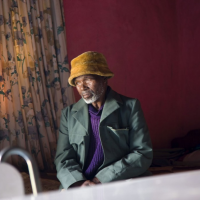
Hier geht es zum Artikel auf Deutsch.
The Organization Empilisiweni Masimanyane works against ignorance about AIDS and the stigmatization of HIV sufferers.
Buyiswa Mhambi is a joyful woman who seems to burst with energy and a sheer zest for life. The 58-year old South African from the Xhosa people uses every opportunity to burst into laughter. Her loud, hearty laughter seems to shake her entire body and overwhelms the people around her. She needs this to counter the intolerance, ignorance, stigmatization, and the many taboos around her, for Buyiswa Mhambi is fighting in a war – a war against the deadly HIV virus and its wildfire spread in South Africa.
With its 5.5 million HIV sufferers, South Africa has among the highest infection rate in the entire world. In a country that still struggles with its inheritance of Apartheid, where unquestioned traditions remain a source of stability, where different cultures meet and clash, and where poverty and unemployment produce high crime rates and a widespread climate of violence, the fight against AIDS cannot be won by distributing condoms alone. In the Eastern Cape province, where around 4.5 million of the Xhosa people are living in dire poverty, the disease is still rampant despite the many initiatives designed to stop its spread.
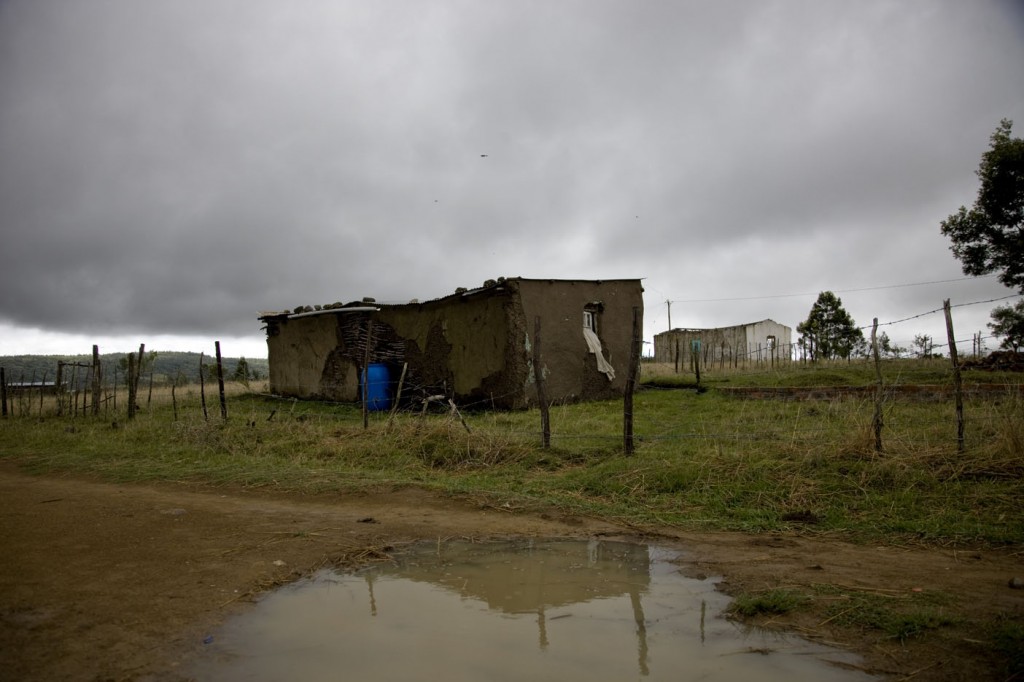
Stopping the tide with tiny spoons
Buyiswa Mhambi was in her late 40s when the virus changed her life and the lives of her family forever. Two of her sisters died of AIDS in quick succession. None of the people around her knew enough about the disease and the risks and causes of infection. Today, Buyiswa has become an expert in this area and is in charge of the Empilisiweni (A Healthy Place) initiative that is committed to fighting against rigid prejudices, strict traditions, the stigmatization of HIV sufferers, and ignorance about the disease.
“We need a change in the hearts and minds of the people. That is the hardest thing. I often feel as if I am facing a giant wave and I have nothing but a tiny spoon to stop the tide” – this is how Buyiswa Mhambi, director of Empilisiweni, describes her feeling of helplessness in the face of an infection rate that refuses to lessen.
Epilisiweni was founded by Dr. Leslie-Anne Foster as part of the umbrella organization Masimanyane (“Let us unite”). In 1995, the passionate fighter for women’s rights, Dr. Leslie-Anne Foster, launched Masimanyane with the stated aim of offering gender-sensitive support to South African women affected by violence. As a South African citizen, she fights for women’s rights across the globe and is considered one of the leading proponents of her cause in South Africa, alongside Rashida Manjoo. Her organization offers protection for women, advises against violence, takes in raped or abused women and girls, and fights the increasing violence in the country.
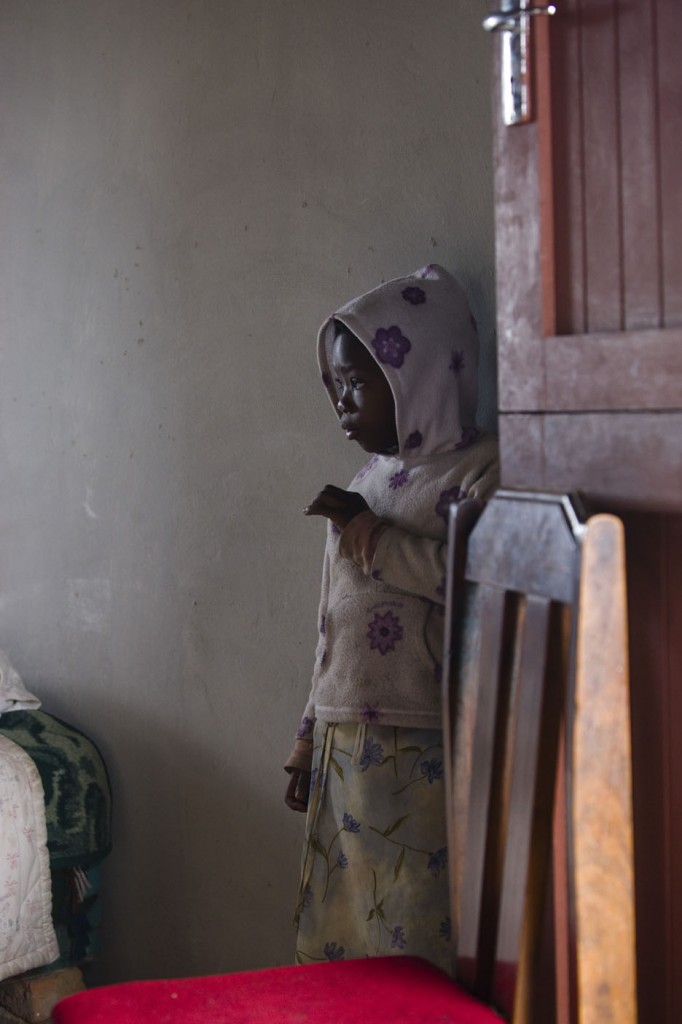
One consequence of this culture of violence against women is the spread of HIV.
54 percent of HIV sufferers in South Africa are adult women. A large part of these have been infected as a result of rape. The UN has revealed that the risk of infection in South Africa is four times higher for young women and girls than for men. This is no wonder in view of the fact that South Africa has among the highest number of rapes in the entire world. From April 2006 to September 2007 alone, a total of 75,000 rapes were recorded, with Amnesty International estimating the number of unrecorded cases to be much higher. Few women report their ordeals. “I was alone in my village, my children were at school and everybody else was gone, when six young men came and gang-raped me in my home”, one victim reveals at one of Empilisiweni’s public information events. She did not go to the police, and the fear of public shame made her hide her experience from her husband and her friends.
From a source of advice to a large-scale HIV prevention initiative
“We cannot speak about HIV without speaking about violence and rape. Here, women are victims. We are taught to stay in the roles that we have been given”, Buyiswa Mhambi explains. The original purpose of Empilisiweni was to offer counselling to HIV-positive women and girls who oftentimes suppress any thought of the virus and its consequences after being subjected to rape. She explains her work: “When I started as a manager here in 2003, I stopped offering only advice to women who come to us. For me, it was more important to go and work with the people in the communities where they live.” After all, South African women are a crucial part of every village community. Buyiswa is convinced: “If we want to beat HIV in the long term and avoid more infections, we need everybody in every village to understand the risks of HIV and the consequences of letting the virus spread.”
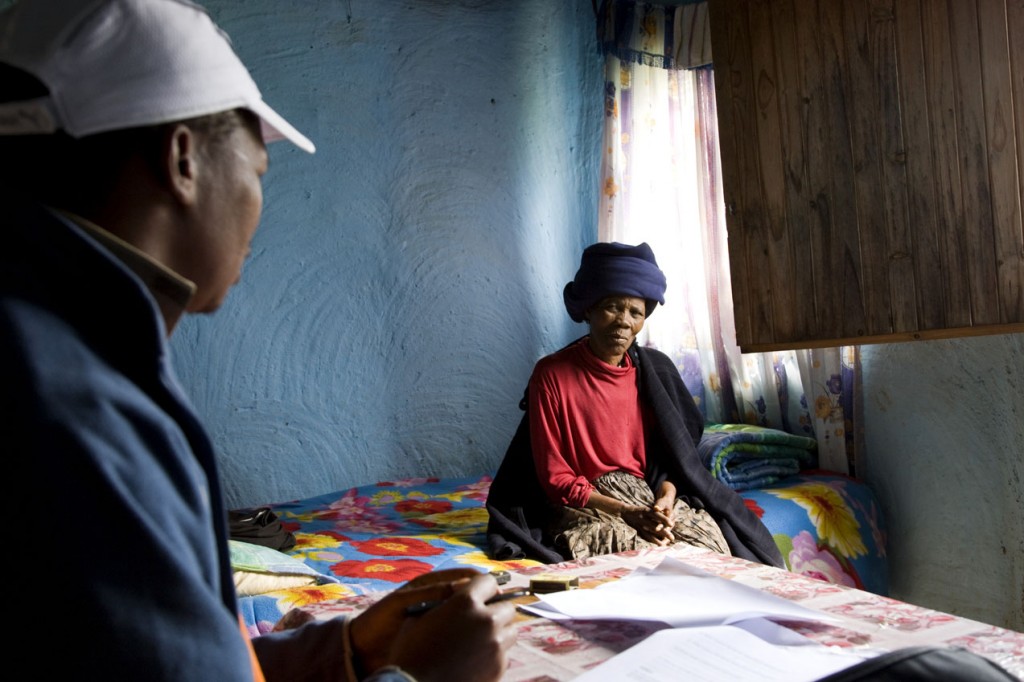
Empilisiweni looks at the structure of every village as a whole: its economic situation, the state of education and teaching materials, medical support by clinics or hospitals, infrastructure, the demographic situation, and the state of cooperation among the various authorities, with traditional or religious leaders and with the government. “Every place that we visit is different, with its unique problems and its unique challenges“, Buyiswa Mhambi explains. Sex remains a taboo subject, especially in the rural world of the Eastern Cape. HIV infections are commonly related to sexual intercourse alone, and sufferers are stigmatized by society. The effect is an unwillingness among people to take HIV tests and among HIV-positive people to “come out” by using preventative measures, such as protected sex, avoiding breastfeeding, caesarean sections etc. One of the key themes of the Empilisiweni Masimanyane campaign tackles exactly this problem: “Remove the Stigma – know your status!” It aims to treat HIV as a disease just like many other common diseases, such as tuberculosis, cancer, or diabetes.
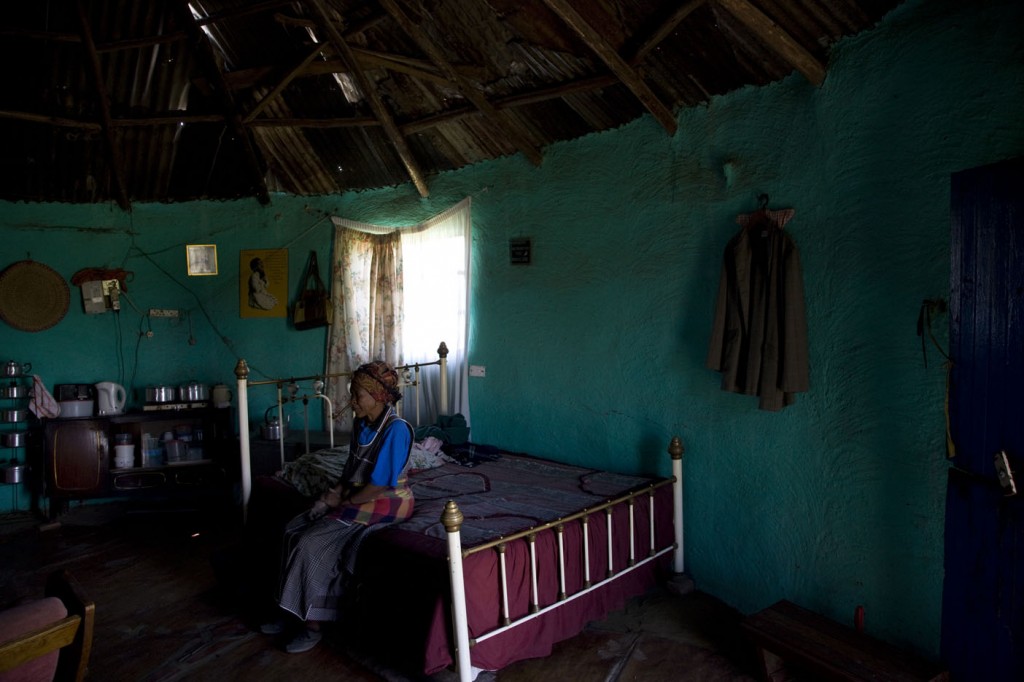
The men and women working on the campaign try to visit as many people as possible in their homes and talk to them about violence, sex, and diseases and their consequences. This is supported by public information events in schools, hospitals, and in the communities, as well as thorough health checks that are offered on site and free of charge. The campaign involves local community leaders, politicians or the police, as well as religious and traditional leaders.
Since Buyiswa Mhambi started to work for the organization, twelve villages, 24 schools, and five prisons have been included in the large-sale HIV prevention project. In May 2009, the Empilisiweni team started its work in Frankfort.
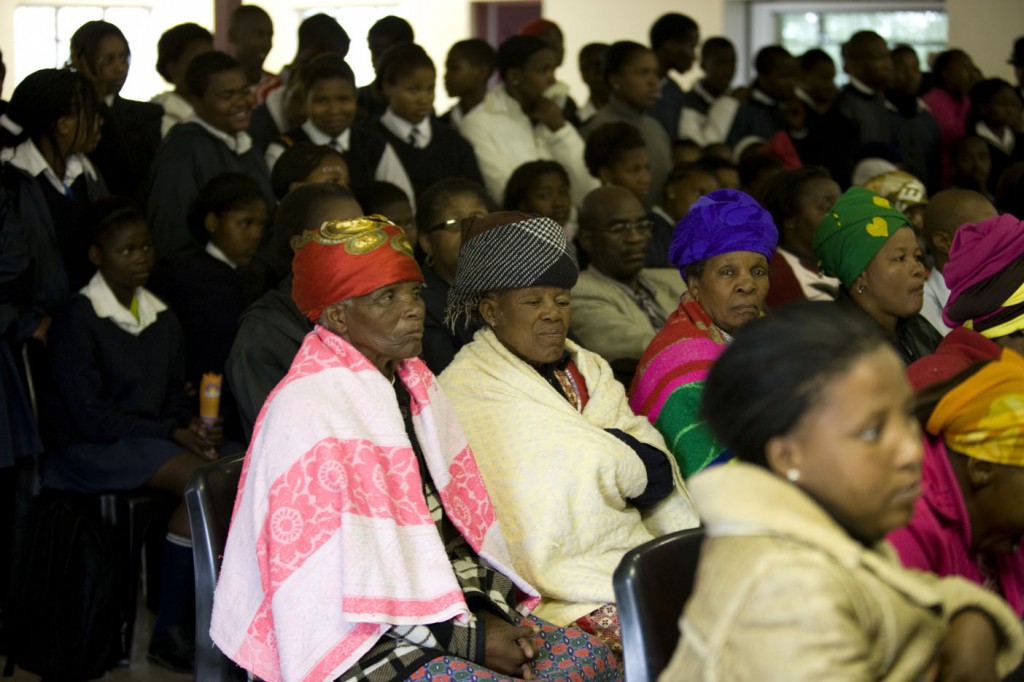
Frankfort – A place of contrasts
With its five villages, Frankfort lies about 80 km from East London. It is a place of extreme contrasts. In the main village, the colourful roundhouses of the Xhosa sit alongside German colonial-style buildings. The old German community was relocated when the homeland was set up in 1979. Nowadays, an old chapel, refurbished as a family home, the former school, the cemetery, and a number of administration offices are reminders of the German immigrants. Despite their solid structures, the buildings are starting to crumble: leaking roofs, no sanitary installations, broken windows, spreading mould, and disintegrating walls are the visible signs of the poverty of the community.
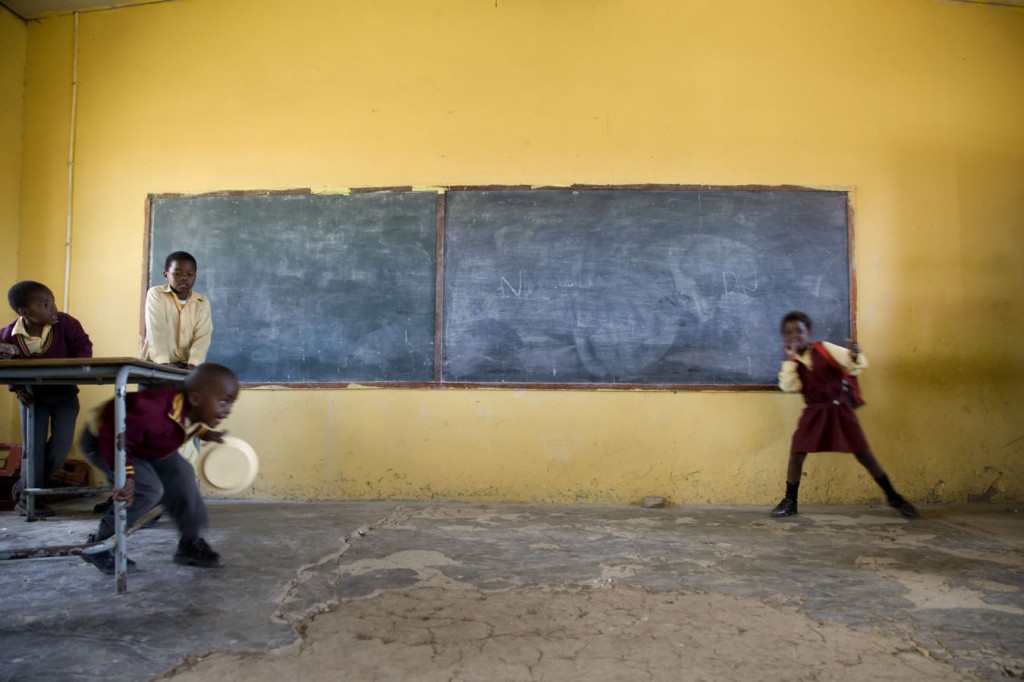
Frankfort’s schools are fighting with the sad fact that over half of their pupils have died of AIDS in the last ten years. Of the remaining children, around half are AIDS orphans. At the same time, there is not enough funding for teachers. The primary school employs 15 teachers for around 500 children. “That is another cause for the spread of HIV” Buyiswa Mhambi believes. “The children are not given the basic education that helps them distinguish good from evil, and they have too much time on their hands. Many teenagers are bored, frustrated, or very sad inside. We are all carrying so much pain around with us and we have to learn to cope. But how can a young man, who has lost his parents, who is shunned by the community, who is poor, living with relatives under the same financial and social pressures – how can he learn to cope with his pain? He will become angry. And anger causes violence.” In Frankfort, Empilisiweni works very closely with the police under Captain Tummani: training courses to raise awareness for violent crimes amongst policemen, projects to get youths away from the streets, and numerous information campaigns are the positive outcomes of this cooperation.
But the police cannot help against the widespread lack of knowledge and ignorance. This is why Buyiswa Mhambi has begun to train villagers as social workers. They accompany Empilisiweni for a year on its public events and home visits. After this year, three or four of the trained villagers are employed by the organization and continue its work in the villages.
In her pursuit of real education, Buyiswa has been working with her team in a questionnaire on preventing and dealing with HIV infections. With this questionnaire, the Empilisiweni teams go from house to house. They talk openly about sex, HIV, about the personal situation of the people they are visiting, and about means of intervening and helping them. “We discover many ill people in our door-to-door tours. Many suffer from tuberculosis, from hunger. Many show obvious symptoms of health deficiencies or are plainly HIV-positive without realizing it. We then get a doctor, pay for transport to a hospital, and organize drugs and support”, Mhambi explains.
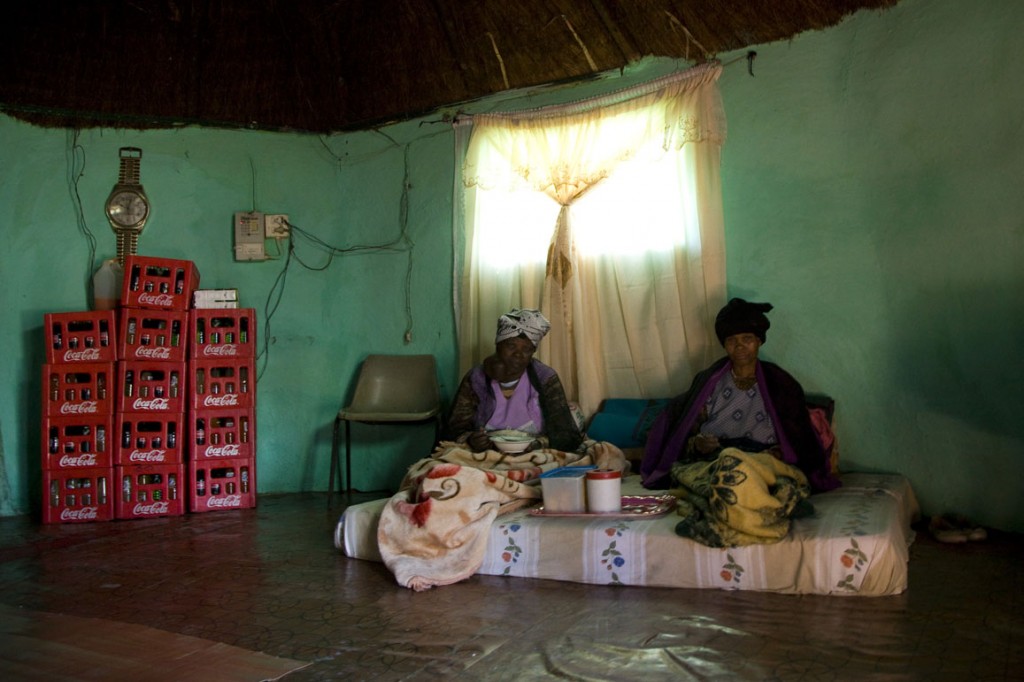
“I am a man. I cannot get Aids. Speak to my wife.”
Frankfort is a case study that shows that the need for education is particularly urgent in the rural countryside of the Eastern Cape. Almost every second person still had very basic questions about HIV: one old woman asked openly: “I am too old to do anything with my husband anymore. How could I get infected?” When told that she is at risk, because she helps out during births without wearing protective gloves, she was outraged and blamed depraved youths for the illness. One man welcomed the Empilisiweni team by stating: “I am a man. I cannot get AIDS. Speak to my wife.” After the talk, he volunteered for a free HIV test. One young woman admitted: “I have heard a lot about AIDS and seen things on the TV. But what is it? Can everybody get it?” Disastrous rumours, such as the belief that having sex with a virgin can heal men of AIDS, or that bad behaviour or too much sex cause AIDS, are also affecting the group’s work in Frankfort. Again and again, the teams have to explain how HIV is transmitted, how one can protect oneself, how to treat HIV-sufferers, and how to behave if one is infected.
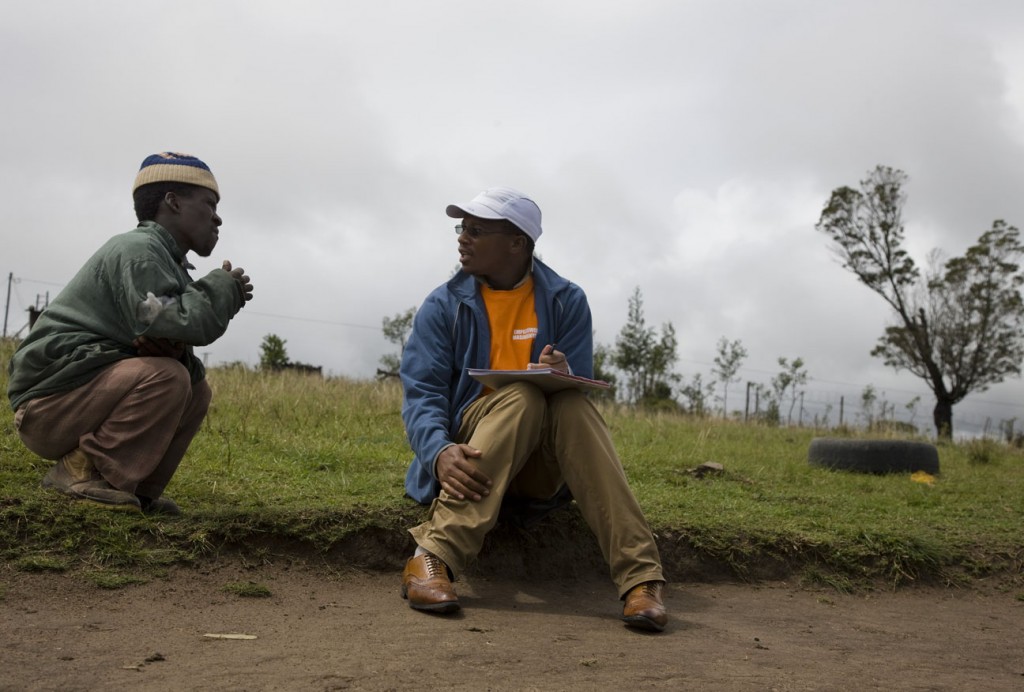
“When we discover HIV-positive people in our visits or our tests, we help them by introducing them to organizations and foundations that work on the illness and its consequences or offer transport or food to sufferers. Many AIDS sufferers live too far from the next hospital to get any drugs. And people who cannot afford enough food also have to forego medication, because the side effects are too severe for malnourished patients”, Buyiswa Mhambi explains.
After a seemingly endless day, the passionate Empilisiweni manager sits back and contemplates: “The fight will continue. There is no hope of any respite. Even today, 1500 people in the Eastern Cape still get infected every single day. This country needs to learn that HIV is only a disease, and not a curse.”
Text und Fotos: Maryatta Wegerif
2 Responses to “The Never-Ending Fight against Taboos and Death in South Africa”
Leave a Reply





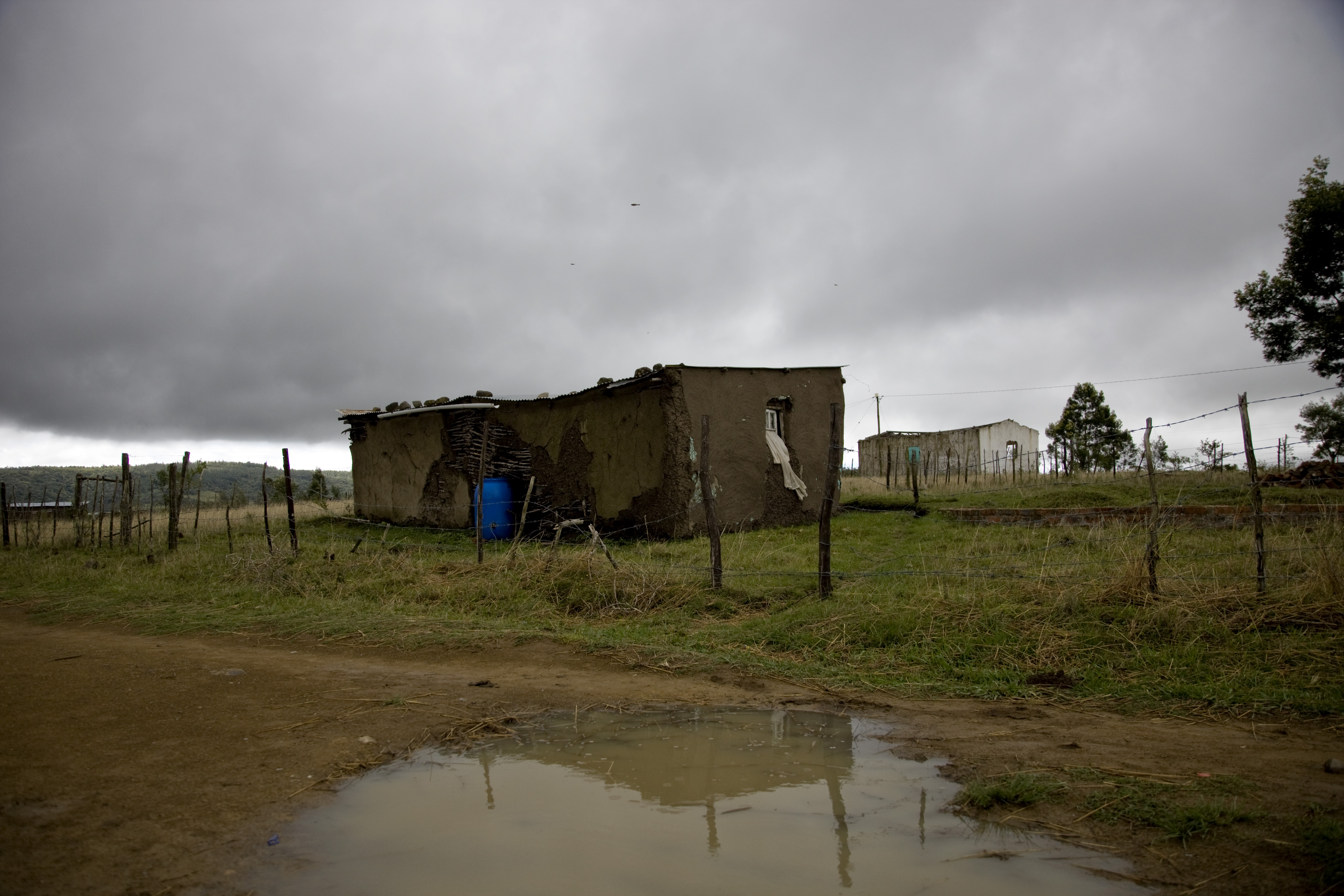
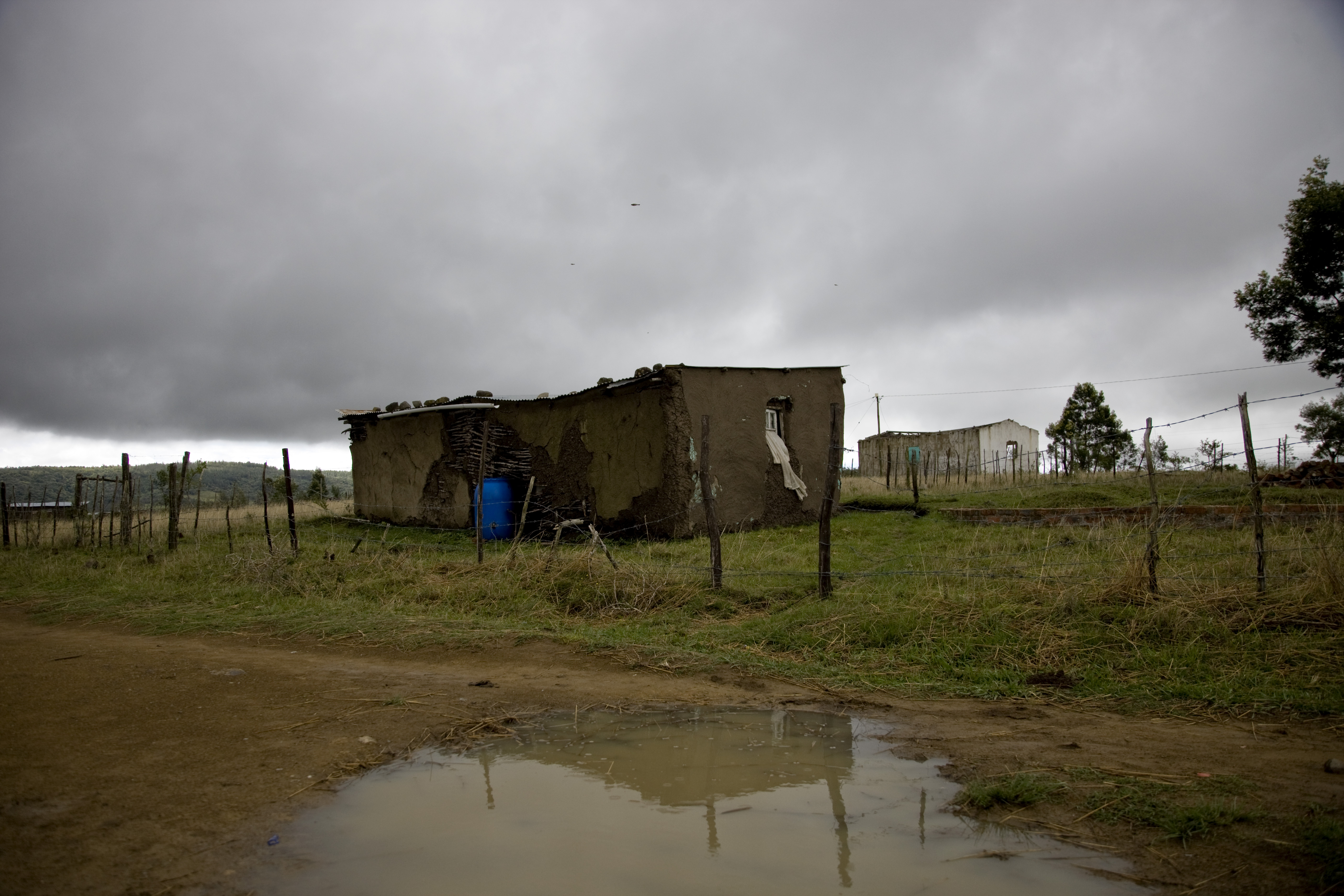
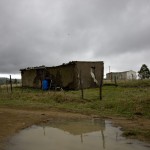
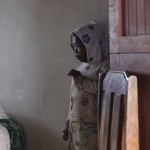
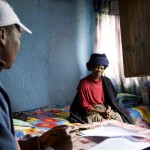

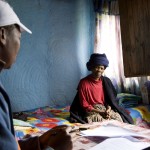
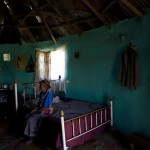
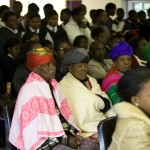

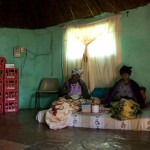
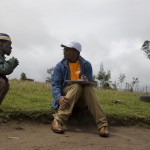
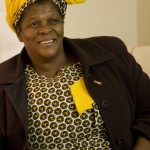
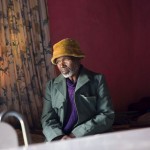


[...] Please follow this link to the English version [...]
Wow – dieser Bericht geht wahrlich unter die Haut. Ich finde ein Pflichtlektüre für alle, die eines der vielen Probleme in SA besser verstehen wollen!
Tolle Bilder zu einem sehr ergreifenden Bericht!